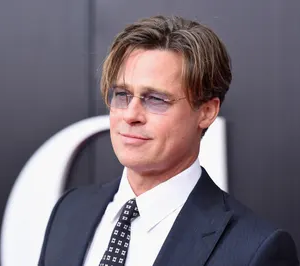Fashion Forward: The Story of Gwen Stefani’s L.A.M.B. Empire
When it comes to style icons who effortlessly blend music, fashion, and culture, Gwen Stefani stands in a league of her own. Beyond her chart-topping hits and eye-catching red carpet looks, Stefani carved out an impressive niche in the fashion world with her iconic brand, L.A.M.B. Launched in 2003, L.A.M.B. has not only redefined celebrity fashion lines but also cemented Gwen’s place as a true trendsetter. Today, we’re diving deep into the fashion-forward story of Gwen Stefani’s L.A.M.B. empire and why it remains a major player in pop culture and style.
From Rockstar to Fashion Mogul: The Birth of L.A.M.B.
Fans of Gwen Stefani know her unmistakable knack for mixing edgy street style with polished sophistication, which translates directly into her fashion line. After years of dominating the music scene as the lead singer of No Doubt and then as a solo artist, Gwen took her style passion to the next level by launching L.A.M.B.—a brand name that cleverly stands for Love. Angel. Music. Baby., a nod to her personal inspirations.
From day one, L.A.M.B. was about more than just clothes. It quickly embodied Gwen’s love for diverse cultures, especially her fascination with Harajuku street culture, refined into upscale ready-to-wear collections that felt both avant-garde and wearable. Think bold prints, playful layering, and a fearless mix of feminine and edgy vibes. This approach captured the hearts of fashion insiders and fans alike in a way few celeb lines have managed.
Why L.A.M.B. Took the Fashion World by Storm
In the early 2000s, celebrity fashion lines were starting to pop up everywhere, but Gwen’s L.A.M.B. had something uniquely fresh. The line wasn’t about slapping a logo on basic tees; instead, Gwen infused her own personality and global influences into each collection. From Tokyo’s vibrant Harajuku district to the streets of Los Angeles, the eclectic spirit behind the brand resonated globally.
L.A.M.B. quickly became synonymous with bold, fearless style—appealing to those who wanted to stand out rather than blend in. The brand’s ability to effortlessly balance streetwear grit with luxe detailing made it a favorite among young fashion lovers and celebrities. It didn’t hurt that Gwen’s own style was always evolving, making L.A.M.B. feel relevant and trend-forward season after season.
The Impact of Gwen’s Signature Harajuku Aesthetic
A standout element of Gwen’s fashion empire is her enduring love for Harajuku culture, which she didn’t just borrow — she celebrated it and brought it mainstream. In the early days, she surrounded herself with Japanese Harajuku Girls, who became her backup dancers and style muses, embodying the colorful, maximalist aesthetic that would heavily influence her brand.
L.A.M.B. collections often showcase this vibrant pop-culture influence with playful prints, layered silhouettes, and unexpected color palettes. This infusion of global street style with high fashion set L.A.M.B. apart and laid the groundwork for the multicultural, inclusive approach to fashion we see dominating today’s industry.
Expanding the Empire: Beyond Clothing
While L.A.M.B. debuted primarily as a ready-to-wear clothing line, Gwen didn’t stop there. Over the years, the brand expanded into accessories, fragrances, and even footwear. The L.A.M.B. shoe line, in particular, became a must-have for fashionistas craving edgy yet chic designs—highlighting Gwen’s attention to detail and understanding of her audience’s desires.
This growth reflected how celebrity fashion brands evolved in the 2000s, with L.A.M.B. staying ahead of trends by offering the full style package. Gwen’s hands-on involvement in each facet helped maintain the brand’s authenticity and ensured it reflected her evolving taste and cultural inspirations.
L.A.M.B.’s Legacy and Influence on Today’s Fashion Scene
Nearly two decades after its debut, L.A.M.B. remains a touchstone for celebrity fashion lines done right. Gwen Stefani’s ability to fuse music, culture, and fashion created a blueprint that many have tried to emulate but few have matched. Today, as streetwear and cultural fusion dominate runways and Instagram feeds, L.A.M.B.’s early championing of these trends proves just how visionary Gwen was.
Moreover, Gwen paved the way for musical artists to be taken seriously in the fashion business, inspiring generations of stars stepping into entrepreneurship. The brand’s fusion of pop culture and high fashion remains relevant, influencing collaborations and trends in today’s style ecosystem.
Why Fans Still Can’t Get Enough
For fans and fashion lovers alike, L.A.M.B. isn’t just a brand—it’s an attitude. It’s the fearless self-expression Gwen embodies, a celebration of individuality wrapped in chic, wearable art. The brand’s ability to evolve while staying true to its roots keeps it fresh season after season.
With Gwen Stefani’s ongoing relevance—from music to TV personality status to fashion trailblazing—L.A.M.B. continues to captivate new audiences. It remains a shining example of what happens when a celebrity uses their voice and taste to build a lasting, fashion-forward empire.
Final Thoughts
Gwen Stefani’s L.A.M.B. empire is a masterclass in blending creativity with business savvy. From its bold Harajuku-inspired beginnings to a global fashion powerhouse, L.A.M.B. remains synonymous with innovation, attitude, and cultural fusion. For anyone hungry to understand how celebrity brands can transcend trends and build legacies, Gwen’s journey with L.A.M.B. is an inspiring fashion forward story you simply can’t miss.
Keywords: Gwen Stefani, L.A.M.B., celebrity fashion line, Harajuku style, fashion empire, streetwear trend, celebrity brand, Gwen Stefani fashion, L.A.M.B. shoes, fashion-forward celebrities, pop culture fashion


